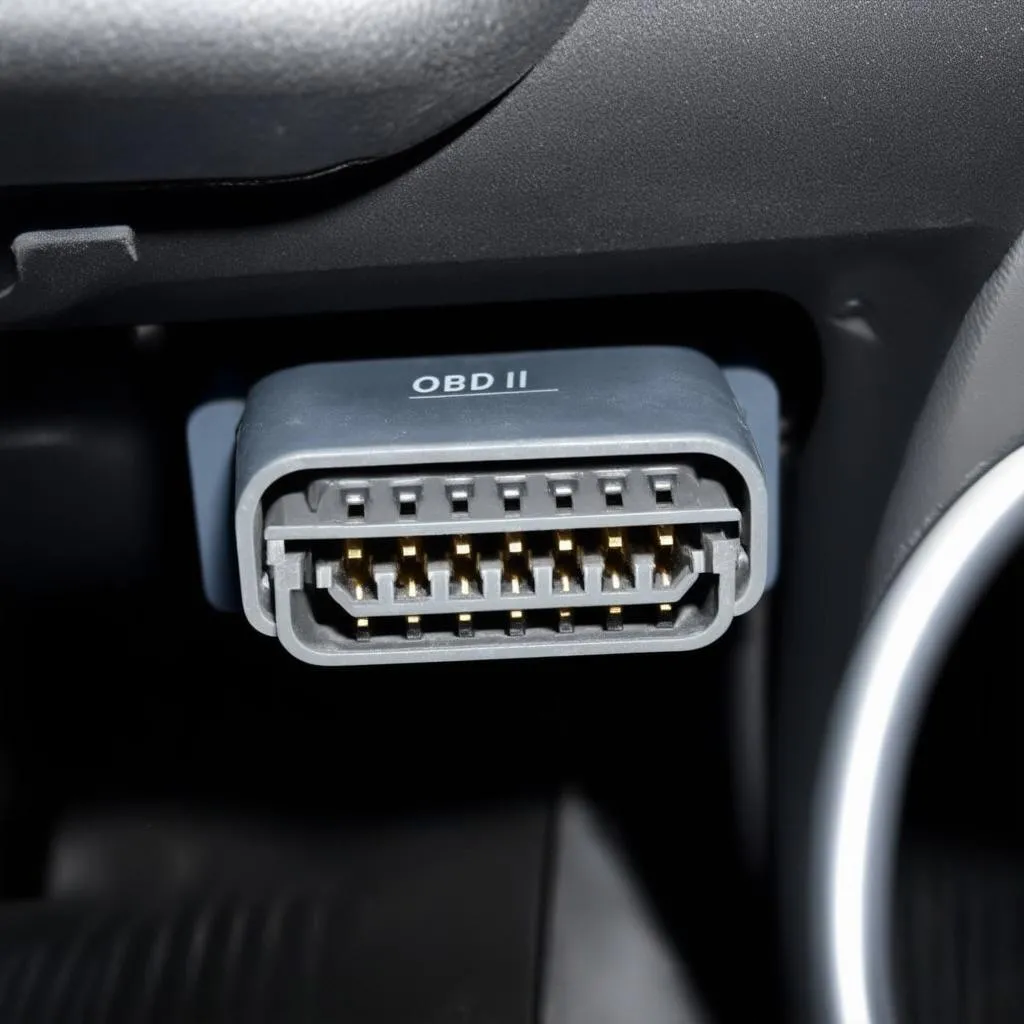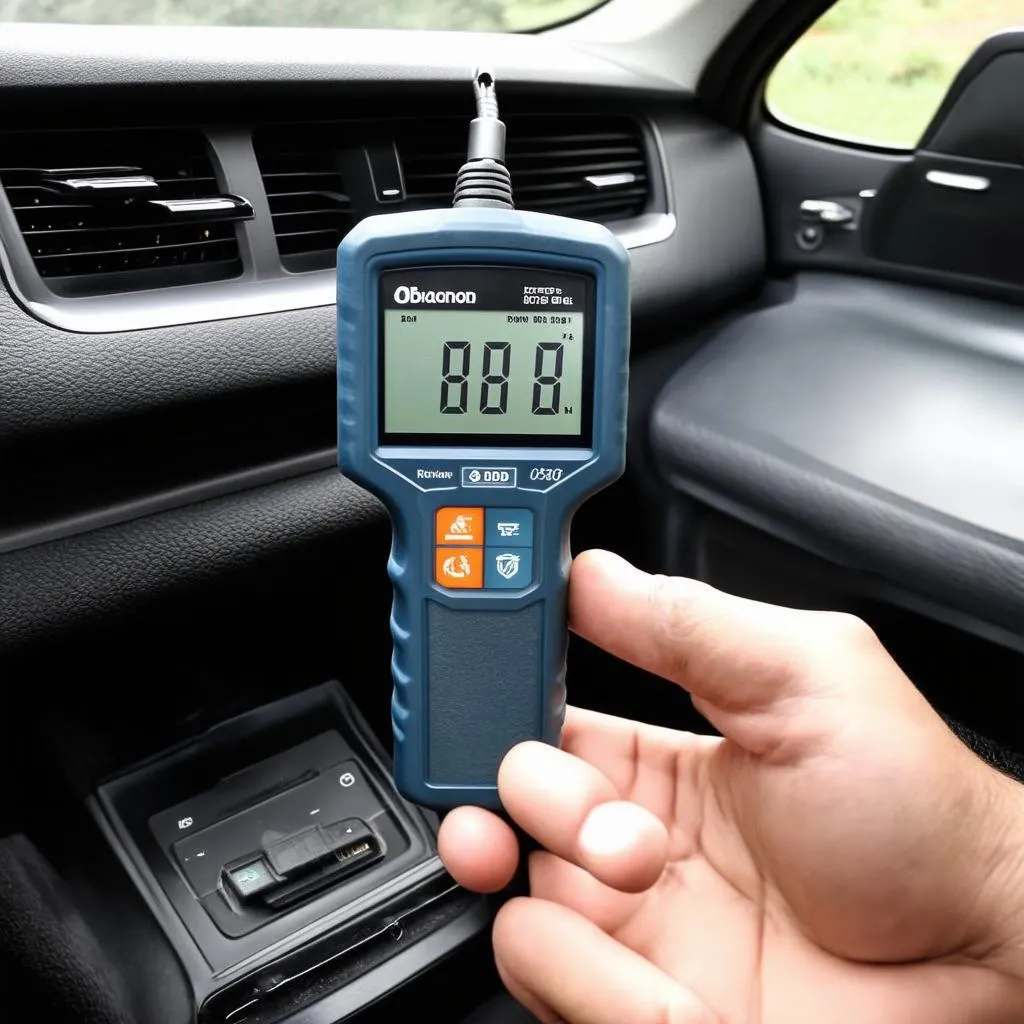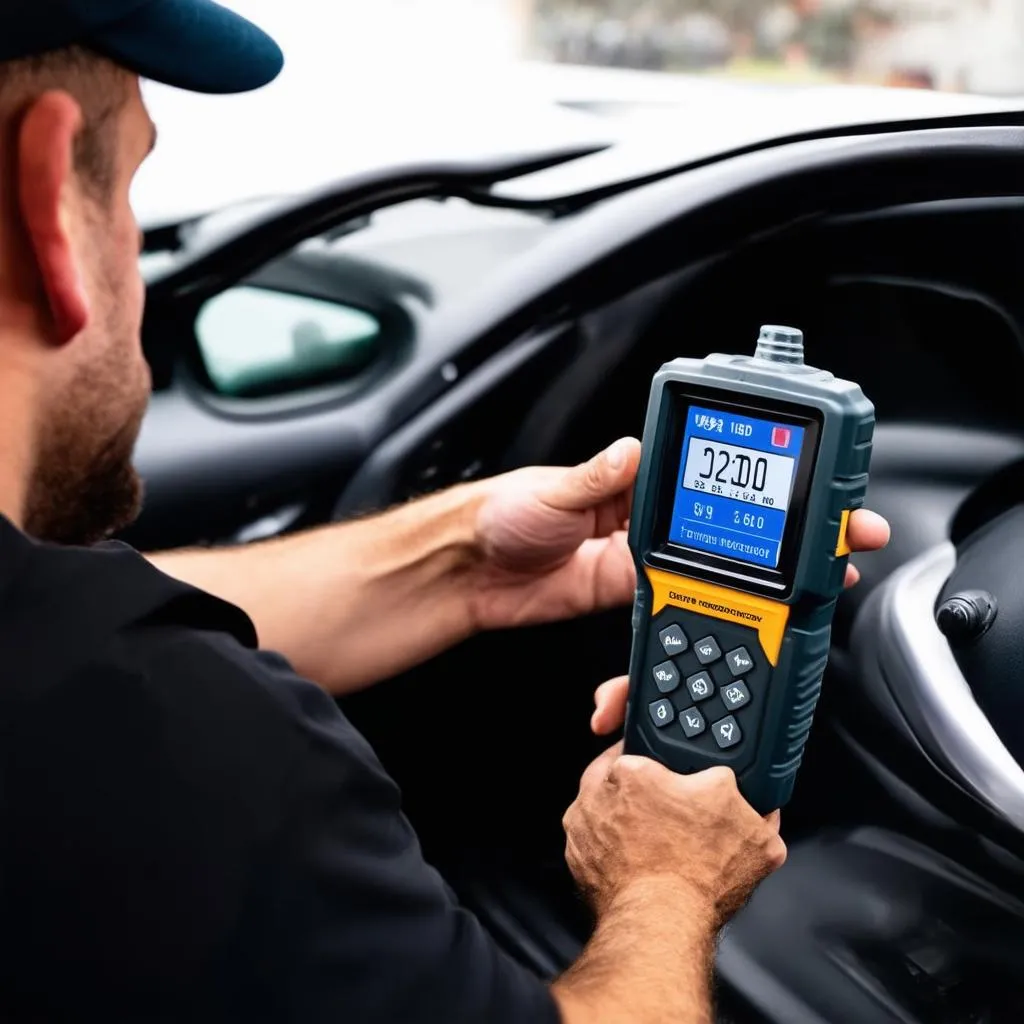They say knowledge is power, and in the world of automobiles, understanding your vehicle’s inner workings is like holding the key to a treasure chest of information. And at the heart of this knowledge lies the Automotive Obd Connector.
Have you ever wondered how mechanics diagnose car problems? Or how you can get a deeper understanding of your vehicle’s performance? The answer lies in this unassuming port tucked away somewhere under your dashboard.
What is an Automotive OBD Connector?
The OBD connector, or On-Board Diagnostics connector, is a standardized interface that allows communication between your car’s computer and external diagnostic tools. Think of it as a secret language your car speaks, and the OBD connector is the interpreter that allows you to understand it.
The History of OBD
The story of the OBD connector dates back to the early 1990s, when emissions regulations became stricter. Car manufacturers needed a way to monitor engine performance and detect potential problems that could lead to excessive emissions. This led to the development of OBD systems, initially called OBD-I, which provided basic information about engine health.
However, the technology continued to evolve, and in 1996, the OBD-II standard was introduced in the US, and later adopted globally. OBD-II provided much more detailed information, making it easier for mechanics and even car owners to diagnose problems.
How Does the OBD Connector Work?
The OBD connector is a physical interface with a standard number of pins (16 in most cases). Diagnostic tools, such as OBD scanners, connect to this connector and communicate with the car’s Electronic Control Unit (ECU) using a specific language called SAE J1962 (also known as ISO 15031-5).
Think of the ECU as the car’s brain. It receives information from various sensors throughout the vehicle and uses this data to control engine performance, transmission, and other systems. The OBD connector allows you to tap into this vast database of information.
Why Is the OBD Connector Important?
The OBD connector is a vital tool for both professionals and everyday car owners. Here are some key reasons why:
1. Diagnostic Power
The OBD connector gives mechanics and car owners the ability to:
- Diagnose Engine Problems: Identify potential issues like misfires, sensor failures, or emissions problems.
- Read Diagnostic Trouble Codes (DTCs): OBD-II systems store codes related to any issues detected, providing clues to the root cause of problems.
- Monitor Engine Performance: Track real-time data like engine speed, fuel consumption, and coolant temperature.
- Reset Check Engine Light: Clear the check engine light if a minor issue has been resolved.
2. Performance Tuning
While OBD-II was initially designed for diagnostics, its capabilities have expanded to include performance tuning. Advanced diagnostic tools can access and modify ECU parameters, allowing enthusiasts to:
- Increase Power and Fuel Efficiency: Adjusting ignition timing, fuel maps, and other parameters can enhance performance and improve fuel economy.
- Customize Engine Performance: Tailor your car’s driving characteristics to your preferences.
- Improve Emissions: Optimize engine settings for optimal emissions output.
3. Data Logging and Analysis
The OBD connector provides access to a wealth of data that can be logged and analyzed. This information is valuable for:
- Understanding Driving Habits: Track your driving style, fuel consumption, and other parameters to improve your efficiency.
- Monitoring Vehicle Health: Keep track of important metrics over time to detect potential problems before they become serious.
- Analyzing Performance Data: Gather data for racing or performance testing.
OBD Connector: A Bridge Between You and Your Car
The automotive OBD connector is more than just a physical port; it’s a bridge between you and your vehicle’s complex systems. It allows you to gain valuable insights into your car’s performance and health.
Think of it as a window into the soul of your vehicle. Just as a mechanic uses diagnostic tools to speak the language of your car, understanding the OBD connector empowers you to unlock the secrets of your car’s inner workings.
Unlocking the Potential
The OBD connector is a powerful tool that can be used for a variety of purposes. Whether you’re a seasoned mechanic, an enthusiastic car owner, or simply curious about your vehicle’s performance, the OBD connector provides a gateway to a world of information.
So, the next time you’re under the hood, take a moment to appreciate this small but powerful port. It’s a testament to the incredible advancements in automotive technology and a reminder that knowledge is truly power.
Frequently Asked Questions
Q: Where is the OBD connector located in my car?
A: The OBD connector is typically located under the dashboard on the driver’s side. Look for a 16-pin rectangular connector that may be labeled “OBD II” or “OBD.”
Q: What type of diagnostic tool do I need?
A: There are many types of diagnostic tools available, ranging from basic code readers to advanced scan tools with data logging capabilities. The best tool for you will depend on your needs and budget.
Q: Can I use an OBD connector to modify my car’s performance?
A: Yes, advanced diagnostic tools can be used for performance tuning, but this should be done carefully by qualified professionals. Modifying ECU settings can have unintended consequences if not done properly.
Q: What are some common OBD connector troubleshooting tips?
A: Check for a blown fuse in the OBD connector circuit. Also, ensure the connector is clean and free of corrosion.
Q: Is it safe to use an OBD connector?
A: When used properly, the OBD connector is a safe and reliable tool. However, it’s important to choose reputable diagnostic tools and avoid making unauthorized changes to ECU settings.
Unlocking the Potential of Your Car: Contact TechCarUSA Today
Ready to explore the world of vehicle diagnostics and unlock the potential of your car? TechCarUSA offers a comprehensive range of services to assist you with all your automotive needs.
From professional diagnostics to expert repair services, we are your trusted partner in maintaining your vehicle’s optimal performance.
Contact us today via Whatsapp: +84767531508 to schedule a consultation and let us help you achieve a deeper understanding of your car.
 OBD connector location in a car
OBD connector location in a car
 OBD scanner tool used for car diagnostics
OBD scanner tool used for car diagnostics
 Professional car diagnostics using an OBD scanner
Professional car diagnostics using an OBD scanner
